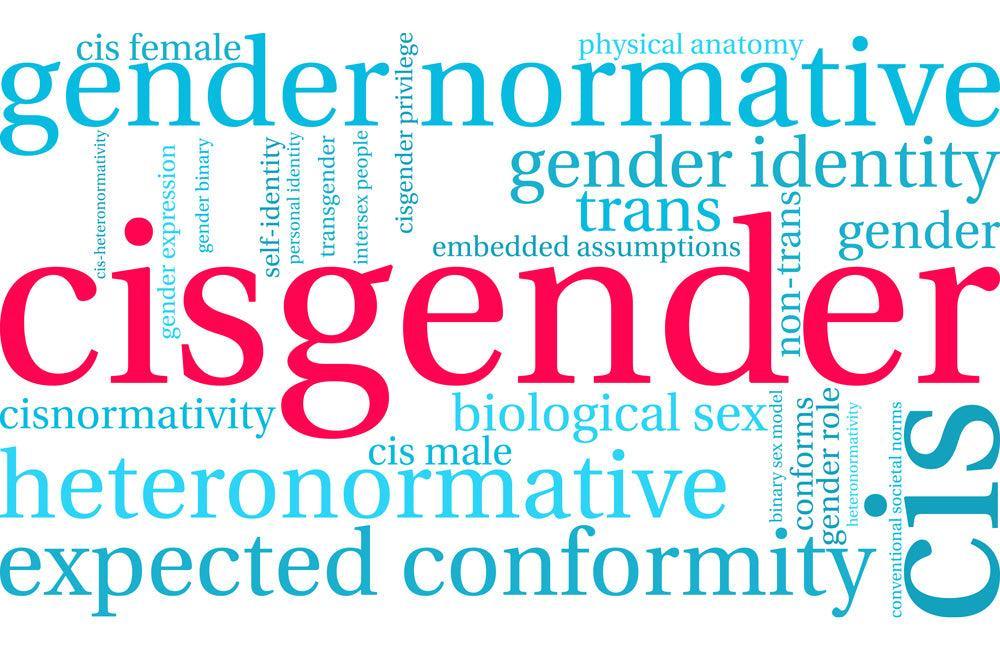
As soon as people hear the name cisgender, many strange things come to their minds, as it happens for other sexual types, and most people get a little weird about it. But the exciting thing about being cisgender is that many of the world's population is cisgender. And the truth is that many people do not know the exact definition of cisgender.
Cisgender is a gender identity that a person thinks matches the gender that doctor/experts assigned them at birth because of their vagina or penis and other appearance. But that doesn't mean that people who are cisgender can't be part of LGBTQIA+ communities.
In this article, cisgender is explained in detail and in easy language. Hence, you will quickly know its definition, explanation, or comparison with a cisgender with other gender identities.
What Is The Real And Obvious Meaning Of Being A Cisgender?
Cisgender means explicit cis-gender, which refers to an explicit gender identity, which an individual or society recognized as the identity when it was received as the apparent sex of a male or female after being born, or after they were born a doctor assigned them gender identity at birth.
For example: If a doctor or obstetrician determines a person's gender as male at birth, and this person identifies as a male, they are known as cisgenders.
People who do not identify with an explicit gender at birth may refer to themselves as trans, including gender identities such as transgender, non-binary and genderqueer.
It would help if you did not get confused on this subject and should know it. Gender identity and sexual orientation are different things. And you should understand that identifying as cisgender doesn't mean you're just heterosexual. A person who is determined as a cisgender may be bisexual, straight, asexual, heterosexual, or homosexual (gay, lesbian).
However, you may have known or heard the term cis-set, which is an abbreviation for cisgender heterosexuals, which describes someone who is cisgender and who feels sexually and romantically attracted to people of the opposite sex (i.e., a woman born with a vagina that is attracted to men, or a man born with a penis that is attracted to women),which is considered a default in society. That is the apparent gender and sexuality combination of a woman and a man who is normally attracted to each other.
What Do Transgender And Cisgender Mean?
Most people who are born with a vagina identify as girls or women. And people who are born with one penis are identified as boys or men. And all those people are cisgenders.
But some people's identity does not match the gender obtained at birth. For example, Some babies are born with a vagina and uterus, but they later identify as male. Or an infant, born with a penis but later identified as a female. Such people are known as transgender (or trans). In the LGBTQ community, transgender people are called 'T.'
What Is Sex Or Gender?
Most people in our society have grown up with the idea that there are two types of genders, a male and a female.
- Scientifically and biologically, we usually associate men with sex (penis), testosterone, and the XY chromosome as their primary sex hormones.
- On the other hand, women consider the vagina, estrogen, and the XX chromosome as the primary sex hormones.
But the main thing is, what about those outside these categories? So in everyday language, they are known as Intersex. People who fall into the intersex category are sometimes identified as those with differences in sexual development. And that's because they may have changes in genital, chromosomal, or sex hormones that don't permanently coincide with clear ideas about male or female categories.
And those identifying as transgender may also have differences in chromosomes, genitals, or sex hormones compared to their cisgender counterparts. However, people who are transgender can still remember as a man, a woman, or something else entirely.
For example- a trans woman who has not had surgery for a single-sex confirmation, or may have a penis (penis), XY chromosomes, and the hormone estrogen as the main hormones, can identify as female. And it depends on how she chooses to be recognized. However, some people in society have some strange thoughts about it.
How Does Cisgender Compare To Straight Person?
Cisgender is a term that describes a person's specific and explicit gender identity, not their sexual or romantic attractiveness and behavior. People who are cisgender are not necessarily straight; they may or may not be linear.
People who are straight tend to experience heterosexuals. It simply means people who are attracted to people of the opposite sex. For example-, a woman is attracted to a man, or a man is attracted to a woman. Or a straight, cisgender man is sexually attracted to only one female. And a straight, cisgender woman can experience sexual or romantic attraction only to a man of the opposite sex.
However, the truth is that people who are cisgender do not necessarily have to be straight; they can experience sexual attraction to everyone. For example- a person can be heterosexual, gay, lesbian, bisexual, or asexual along with being cisgender.
How Does Being A Cisgender Differ From A Person's Gender?
A cisgender is a clear gender identity that aligns with the gender he or she received at birth with the explicitly male or female gender.
The sex of a person is determined based on the appearance of his/her external genitalia (penis, or vagina) at the time of birth.
Most people inherit 23 pairs of chromosomes from their parents at birth, which is natural. And the 23rd pair of chromosomes inherited by a person determines the sex chromosome. Usually, people inherit either the XY chromosome or the XX chromosome.
If someone with a vagina inherits the XX chromosome at birth, she is recognized as a female. If someone with a penis at birth inherits the XY chromosomes, he is assigned as a male.
However, it is also essential for us to note that sex is not binary. And people can have sex chromosomes that people usually identify with as either male or female. But they have reproductive organs and genitals that are generally not male or female and are identified as Intersex.
At birth, if a doctor finds that the baby's genitals are unclear, they may look at other factors, such as internal reproductive organs and hormones, and determine how they can be identified.
Scientifically, or according to the Health Council, a doctor may, after the birth of a baby, perform specific tests to help establish its gender, including the following:
- Physical examination of the baby born
- An ultrasound scan or other related test to examine the internal organs
- Baby's blood test to check gene and hormone levels
- An intersex person can identify as cisgender.
In general, there are three main ways one can identify an intersex person:
- Some may be cisgender, depending on the gender they were identified as at birth, and may use the terms 'male', 'female', 'intergender male', or 'intergender female'.
- Some identity as the gender associated with the opposite sex as opposed to the gender apparent at birth.
- Some may also be explicit and identify as neither female nor male, while some identity as both.
How Is Being Cisgender Related To 'Gender'?
According to the World Health Organization (WHO), gender is a social construct that determines what norms, attitudes, fantasies, and roles should be followed by men and women.
Some examples of gender behaviors and roles include:
- Clothing is traditionally worn by a woman, such as her skirt, bra, or other clothing that a woman can only wear.
- Women are gentle, polite, friendly, nurturing, and caring.
- Men are strong, patient, courageous, aggressive, and devoted.
However, as people age and age, gender roles may change naturally or planned, and they may differ in society.
People who identify as cisgender often conform to gender norms and expectations. However, it is also true that a person can be cisgender but still wear nonconforming gender clothing.
How Is Being Cisgender Related To Gender Identity?
Generally, cisgender is a gender identity. Cisgender refers to a people's clear gender identity that aligns with the gender they were assigned at birth, whether they met as women or men.
A person may use gender identity to describe their thoughts and feelings about their gender. And this gender identity may or may not be different from the gender she received at birth because of her penis or vagina.
According to some social surveys from 1988, 2006, and 2020, and the WHO, children usually begin to identify their gender around the age of 3-6 years. On the other hand, some children may discover from an early age that their actual gender identity does not match the gender they received as an identity at birth. At the same time, others may feel it later.
And not only that, all people who identify as cisgender can change their gender identity at any time in their lifetime, whether through surgery or other reasons.
Gender identity is unique to every person in society, and no one can tell them what their gender identity is or should be because it is fixed by itself. Some people don't feel comfortable or able to judge their gender identity through others, and they don't like it either.
How Is Being Cisgender Related To Gender Expression?
Gender expression refers to the outward appearance of an average person, including a person's physical appearance, behavior, hairstyle, clothing, and fantasies. Some may also include their names and pronouns.
A Person's Gender Expression Should Not Be Identified With Gender Norms
People of any gender identity in the human community and society are free to express their gender in many different ways. Some may prefer to tell a more feminine gender. In contrast, others may like to say a more and more pronounced masculine gender. At the same time, some people may be happy to identify as bisexual.
Conclusion
People who are cisgender are identified by the gender they received at birth or by their physical and hormonal makeup assigned to them by experts. But that doesn't mean that people who identify as cisgender need to feel attracted to people of a different gender themselves Because many members of LGBTQIA+ communities identify as cisgender.
However, people who identify as cisgender may conform to explicit gender norms and societal expectations of expressions; they may also be nonconforming with the apparent gender, while they can still clearly identify the gender they received at birth.
We are honored that you can read our sexual guide, and you can also search for other articles that interest you in the search bar.
We've embedded some of our sex toy products in the article, we're sorry if they get in the way of your reading experience, as we rely mainly on the sex toy business;And if you happen to need one of them, that's a great job, you will experience top intimate products and service from xinghaoya.
Please take the courage to forward articles you are interested in to social media or other online spaces so that we can help more people learn about sex and enrich themselves. Thanks again!









